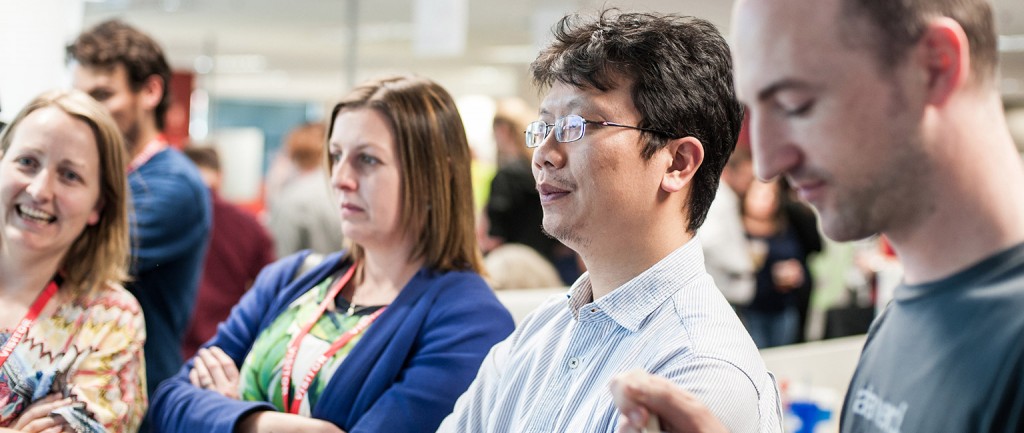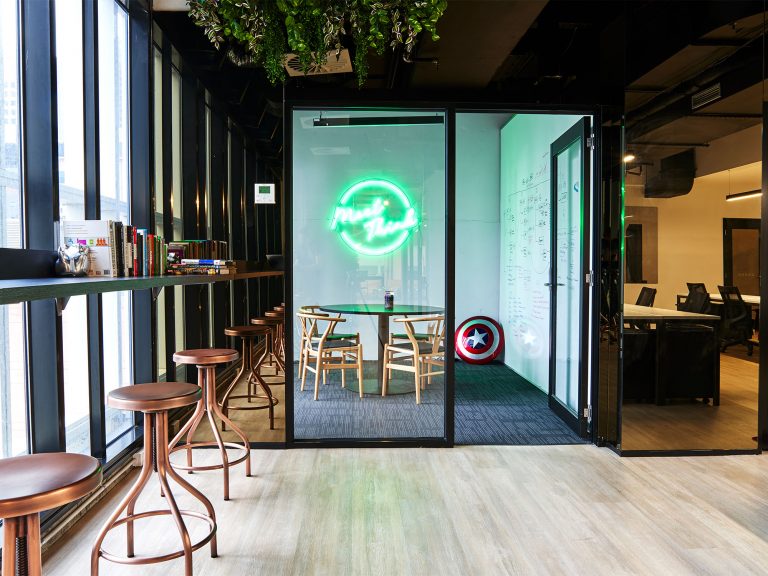Humanising the workplace

Do your employees bring their whole selves to work? Are they excited, motivated and happy to be there?
If you can’t be sure of the answer to that question – you’re not alone.
Craig Davis is an entrepreneur and Board Director of Conscious Capitalism Australia, a not-for-profit that mobilises ethical and profitable businesses. When Davis spoke to the Green Cities Conference earlier this year he asked audiences: “Do we leave the best parts of ourselves at home before we go to work?” A mixed murmur of responses followed.
Davis says people are looking for liberation in their careers – but general lack of engagement is a problem for all of us.
Only 11% of people in the Australian workforce are engaged, 62% are disengaged and 22% are actively disengaged, a recent survey found.
The 2011-12 Gallup workforce engagement poll defined employees who are “actively disengaged” – doubling those who are engaged – as actually disliking the organisation they work for. They feel indifferent towards their role but they won’t leave. So how do employers build a more positive scenario?
Firstly, we need to understand the workforce of today.
Modern employees
According to Davis, the modern worker is:
- Smarter. “We move four IQ points every year,” he says.
- Looking for meaning. “Not-for-profit jobs listing site ethicaljobs.com.au has grown from 10,000 visitors in 2010 to 160,000 visitors in 2015.”
- More connected. “In the last 12 months, corporate communications tool Slack has become more popular than email.”
So if workers are smarter, we should be engaging them at every level. “There needs to be a shift from hierarchy to networks,” Davis says.
Modern employers
If workers are looking for meaning, the business needs to develop a meaning that is higher than profit. “Profit is no more the reason for business than breathing is for living,” Davis says.
The business needs to develop a meaning that is higher than profit.
He cites US supermarket Whole Foods as a company that has a purpose that resonates with both staff and consumers; they want to deliver better food. Whole Foods’ delivery on this purpose has engendered such loyalty that the company spends next to nothing on marketing.
Another US company, Mexican food chain Chipotle, has positioned itself to consumers through the relationship it has with supply chains. They are committed, according to marketing collateral: “To sourcing vegetables grown in healthy soil, and pork from pigs allowed to freely root and roam outdoors or in deeply bedded barns.” Here’s an advertisement Chipotle released in 2011.
https://youtu.be/aMfSGt6rHos
Lastly, if workers are more connected, their business should have an ingrained collaboration strategy. Employees will communicate across a number of channels anyway, so let them send the right message.
Media company The Guardian promise to collaborate not only with stakeholders and employees at every level, but with the public on everyday events and issues. Here’s a television campaign they released in March 2012:
It’s quite unusual for a newspaper to release a TV ad. But The Guardian were not just selling a newspaper, they were advertising a whole new brand of journalism – open journalism – and positioning themselves as the pioneer.
Following the release of the ad, The Guardian tweeted the principles of open journalism, signaling to their readers a willingness to exchange ideas and opinions – no matter where they come from.
If The Guardian, Chipotle and Whole Foods all operate to a purpose that is higher than profit, Davis says it’s likely they have built happier, healthier working communities as a result.
The future is limited for companies that are purely reactive.
Here are Davis’ tips for employers.
Make the shift from:
| Environments to… | Experiences |
| Hieracrchies to… | Networks |
| Distracted to … | Present |
| Closed systems to … | Open collaborations |
| Value to … | Values |
| Window dressing to… | Inside-out |
| IQ to … | EQ (emotional intelligence quota) |
| Knowledge workers to … | Learning workers |
| “What?” to … | “Why?” |
| Ego to … | Compassion |
But it doesn’t happen overnight. Davis says businesses need to remain committed to a long-term strategy if they want to see results. “I see people buckle on long-term strategy for short-term pressures.
“The future is pretty limited for companies that are purely reactive.”







